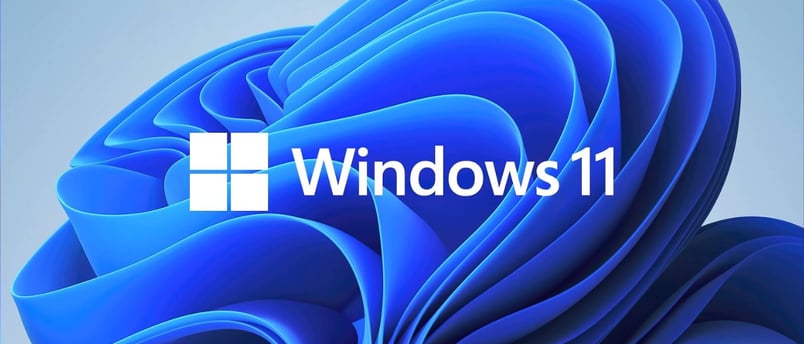Why You Should Think Twice Before Upgrading to Windows 11
Cameron Stewart
2/12/20243 min read


With the recent release of Windows 11, many users are eager to upgrade and experience the new features and improvements promised by Microsoft. However, before jumping into the upgrade, it's essential to consider some critical factors that might make you think twice about making the switch. Here are several reasons why users should exercise caution before upgrading to Windows 11:
Hardware Requirements: Windows 11 comes with stringent hardware requirements, including TPM 2.0 and Secure Boot support. Many older devices may not meet these requirements, leaving users with no option but to stick with Windows 10 or invest in new hardware, which can be costly and unnecessary.
Compatibility Issues: As with any major operating system upgrade, there's always a risk of compatibility issues with existing software and hardware. Some applications and peripherals may not work correctly or may require updates to be compatible with Windows 11. If you rely on specific software or devices for your work or daily tasks, it's crucial to ensure they are compatible with the new OS before upgrading.
User Interface Changes: Windows 11 introduces a new user interface with a centered Start menu, redesigned taskbar, and various visual enhancements. While some users may appreciate these changes, others may find them unfamiliar or disruptive to their workflow. It may take time to adjust to the new interface, leading to potential productivity losses in the short term.
Telemetry and Privacy Concerns: Windows 11, like its predecessors, collects telemetry data to improve user experience and performance. However, some users have expressed concerns about the amount of data collected and the lack of control over privacy settings. Before upgrading, users should review and adjust their privacy settings to ensure they are comfortable with the level of data collection and sharing.
Software and Driver Support: While Microsoft strives to ensure broad software and driver compatibility with each Windows release, there may still be issues with certain programs or hardware components. Before upgrading, it's essential to check for compatibility updates from software vendors and device manufacturers to avoid potential compatibility issues post-upgrade.
Stability and Bugs: New operating systems often come with bugs and stability issues, especially in the early stages of release. Users upgrading to Windows 11 may encounter unexpected crashes, performance issues, or other software glitches that could impact their overall experience. Waiting for Microsoft to address initial bugs and release stability updates can help mitigate these risks.
Economic Impact: Upgrading to Windows 11 and purchasing new hardware can be costly for users. For individuals or organizations with limited budgets, the expense of upgrading hardware to meet Windows 11 requirements may not be feasible, potentially resulting in delayed upgrades or continued use of outdated systems.
Environmental Impact: The production, distribution, and disposal of electronic devices generate environmental impacts, including resource depletion, pollution, and greenhouse gas emissions. Upgrading to Windows 11 and replacing older PCs with new hardware can exacerbate these environmental concerns by increasing the volume of electronic waste.
Resource Depletion: The manufacturing of new hardware requires significant amounts of resources, including rare earth metals, minerals, and energy. Upgrading to Windows 11 and replacing older PCs with new hardware contributes to resource depletion and intensifies the strain on finite natural resources.
Electronic Waste Management: The disposal of old PCs and electronic components adds to the global electronic waste stream. Proper management of electronic waste is essential to minimize environmental contamination and health risks associated with hazardous materials found in electronic devices.
Extended Lifespan of Older Hardware: Some users may choose to continue using older PCs that do not meet the requirements for Windows 11. Extending the lifespan of existing hardware through repair, refurbishment, or alternative operating systems can help reduce electronic waste and minimize the environmental footprint associated with hardware upgrades.
Community and Global Impact: The disposal of electronic waste has social and economic implications, particularly in communities where electronic recycling facilities may be inadequate or nonexistent. Exporting electronic waste to developing countries for recycling or disposal can result in environmental pollution and health hazards for local communities.
In conclusion, while Windows 11 offers several new features and improvements, users should carefully consider the potential drawbacks and risks before deciding to upgrade. Especially since upgrading may lead to increased hardware waste as older PCs become obsolete and are replaced with new hardware that meets the requirements for the new operating system. Assessing hardware compatibility, reviewing software and driver support, understanding privacy implications, and considering the environmental/social impacts of hardware upgrades and electronic waste management are crucial steps in making an informed decision. Ultimately, it's essential to weigh the benefits against the potential challenges and disruptions to determine if upgrading to Windows 11 is the right choice for you.

